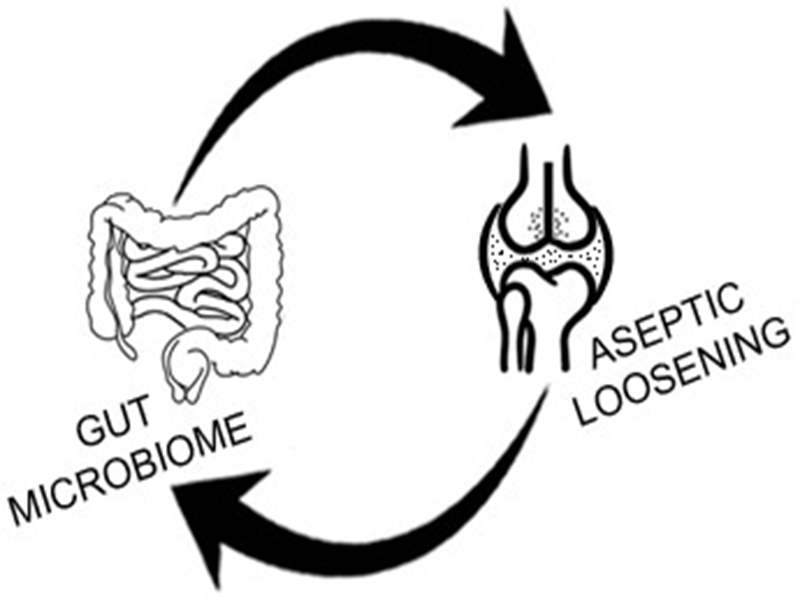Meghan Moran, PhD is an assistant professor of the Department of Anatomy & Cell Biology. I am a bone biologist interested in the molecular interactions between the gut, gut microbiome and bone as a mechanistic pathway to delaying or mitigating arthroplasty failure due to peri-implant particle-induced osteolysis.
Our work
My lab is specifically interested in the interaction between gut physiology, gut microbiome and bone regeneration and implant fixation in the context of joint arthroplasty. The gut microbiome is the collective genetic material of the bacteria, fungi and viruses in stool and can be altered by many genetic and epigenetic factors including diet, host genetics, drug use, exercise, stress and disease. The symbiotic relationship between gut microorganisms and the host is essential to overall health as well as musculoskeletal system function. Indeed, the microbiota has been implicated in osteoarthritis, rheumatoid arthritis, fracture healing and osteolysis.
Aseptic loosening of implants remains a challenge in total joint arthroplasty. Long-term resistance to loosening depends upon establishment and maintenance of the bone-implant interface, a process which depends upon bone regeneration and remodeling. The primary mechanism of aseptic loosening involves particle-induced peri-implant osteolysis in which debris released from the surface of the implant triggers local inflammation, leading to the release of osteoclast-stimulating cytokines. Particle-induced osteolysis is a key factor in failure of orthopedic implants.
We are investigating the cross talk between the gut and the implant microenvironment using preclinical and translational models in order to dampen or mitigate arthroplasty failure, revision surgery and enhance bone regeneration and implant survivorship by targeting the gut.
Technology and methods
We use a variety of methods to investigate bone, bone implant contact and the gut:
- Micro-computed tomography
- Mechanical testing
- Dynamic histomorphometry
- Immunohistochemical staining
- Histology
- In vivo animal models: surgical and non-surgical
- PCR, TaqMan gene arrays
- Serum biomarkers (ELISA, Luminex)
- 16S amplicon sequencing
- Gas chromotography
- Bioinformatics and statistics
Grants
- 1R01 AR079179 (Co-I: Moran) NIH NIAMS “Systems Genetics of Bone Regeneration”
- 1R21 HD102026 (Co-I: Moran) NIH NIAMS “Establishing a New Model of Bone Health in Formerly Premature Individuals”
- 1R01 AR066562 (Co-I: Moran) NIH NIAMS “Detection and treatment of peri-implant osteolysis”
Publications
A full list of Meghan Moran’s research publications can be found on PubMed.
Our team
Contact
Meghan Moran, PhD
Assistant Professor
Department of Anatomy & Cell Biology
Rush University Medical Center
Armour Academic Facility
600 S Paulina St. Room 506B
Chicago, IL 60612
Phone: (312) 563-1257
Email: meghan_moran@rush.edu

